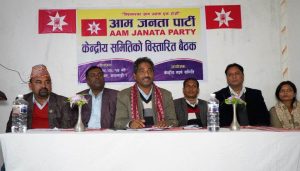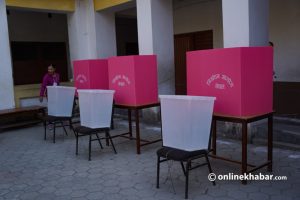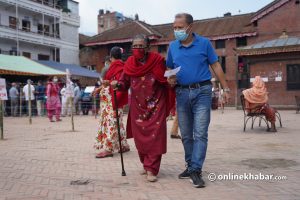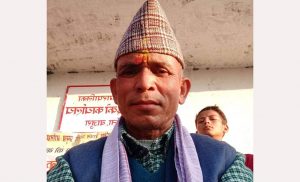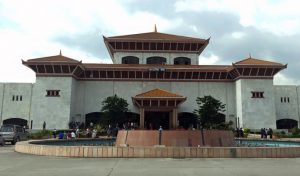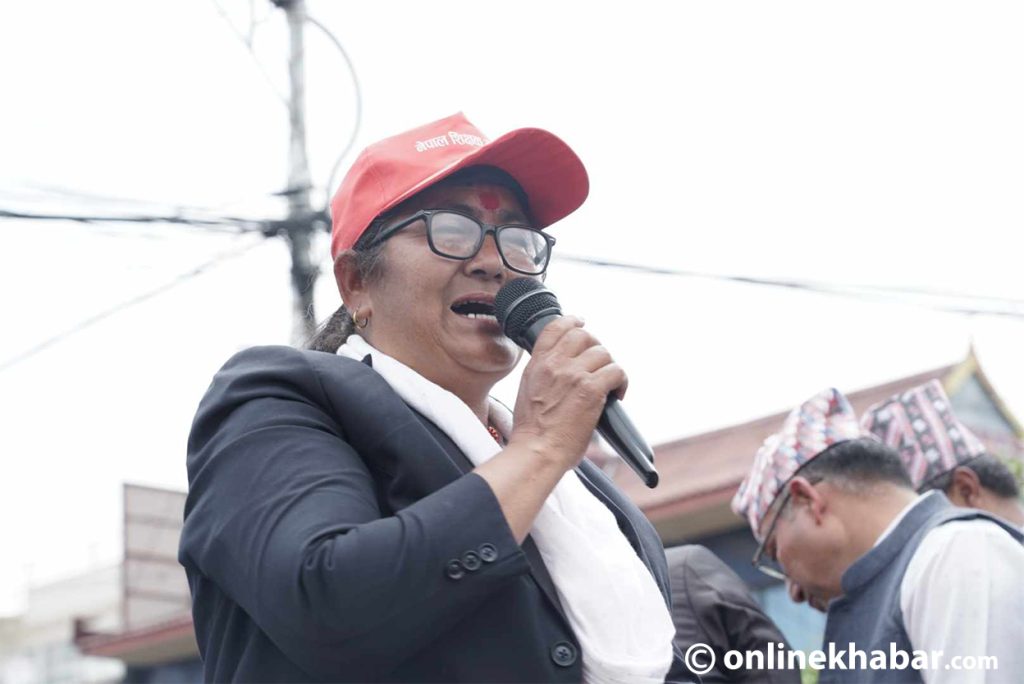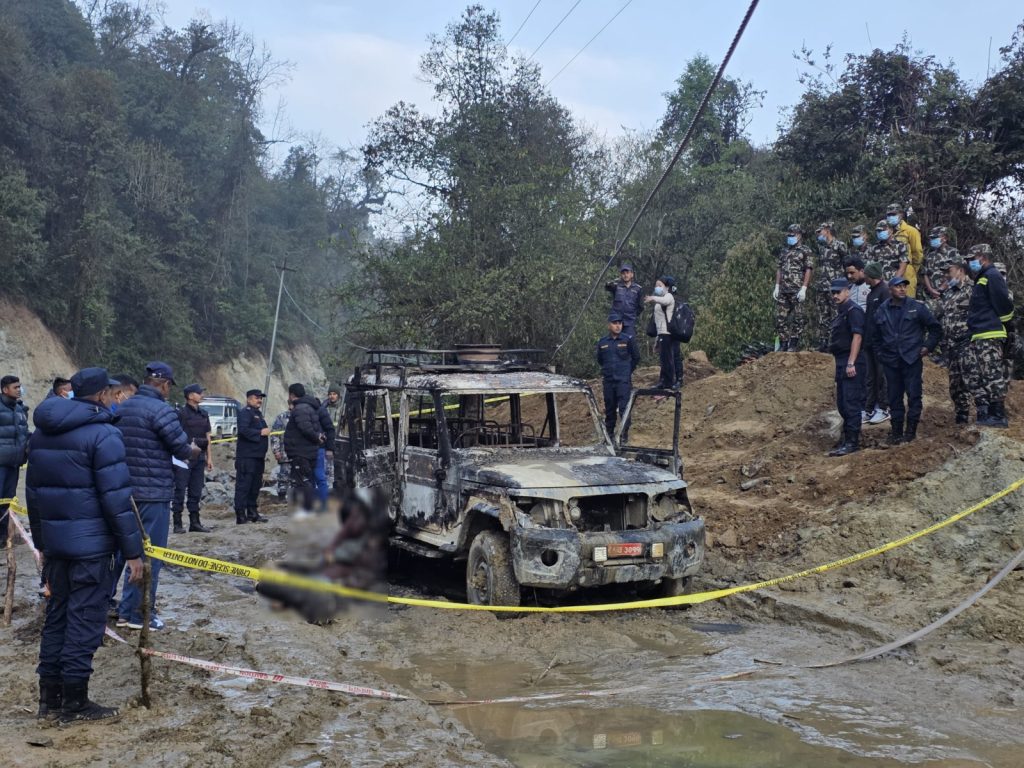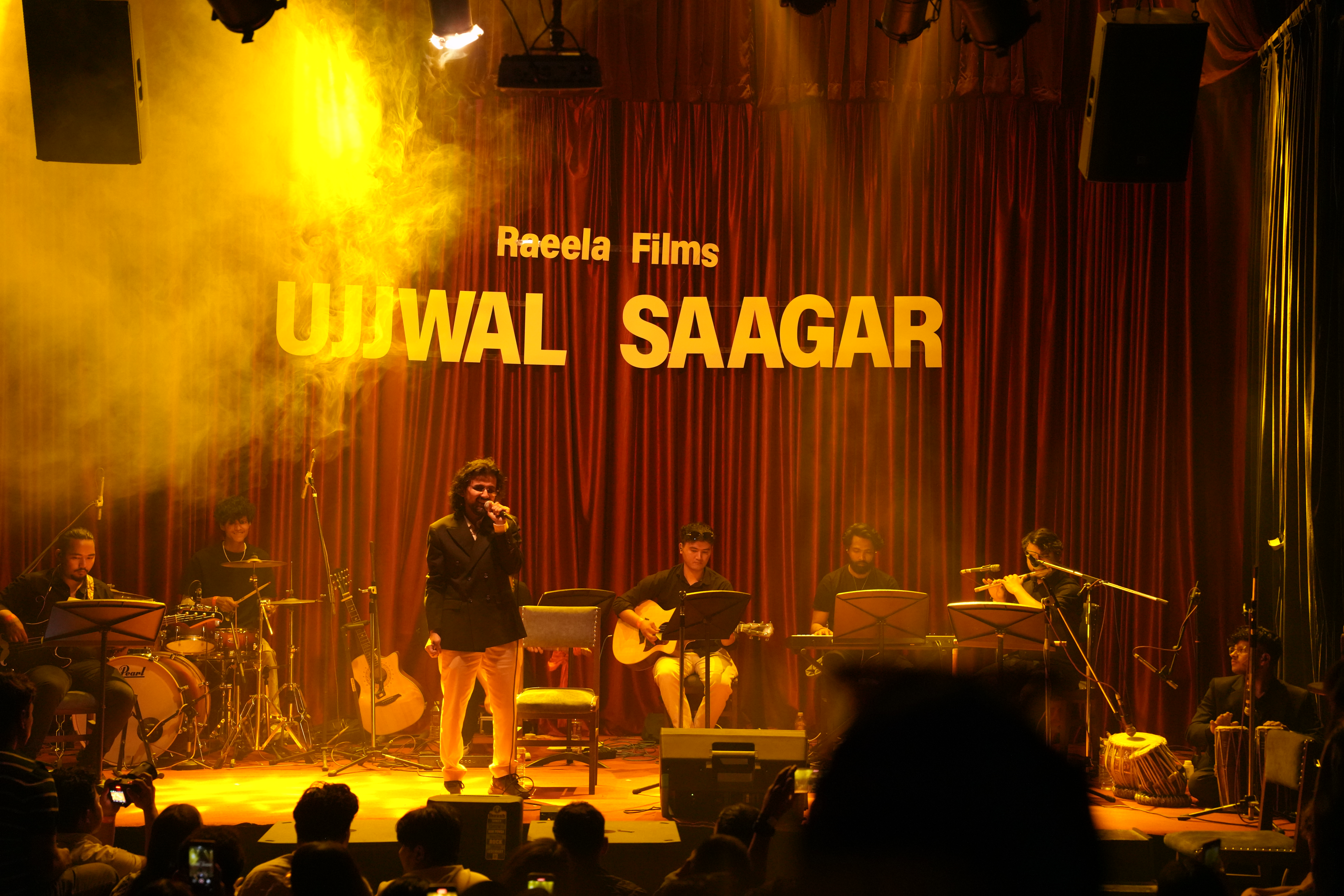
Nepal’s constitution says education is a fundamental right. It states that basic education is the right of every individual and the state should provide primary and secondary education free of cost.
It is a harsh fact that things mentioned in the constitution have not been implemented as acts and laws have not been made on time by these politicians. But, even after years of being unsuccessful, they are still promising the same old thing to the people of the country they would do the things they failed to do up to now. Consequently, they have failed to win the stakeholders’ trust.
Take major political parties’ manifestoes for the parliamentary elections as an example of this.
Nepali Congress
For the next five years, as per its manifesto, the Nepali Congress has set a target of institutionalising measurement of the learning crisis, increasing female (19-24 years) literacy rate to 95 per cent, increasing academic institutions with access to internet service to 80 per cent, increasing enrollment rate in class 11 to least 50 per cent, and technical and vocational skills in the curriculum to 40 per cent.
In addition to that, it also says it wants to free the education sector from political interference by adding proper provisions to Federal Education Act.
Similarly, it is mentioned that a special package will be arranged to attract talented graduates of the universities to become school teachers, and a loan programme will be put into practice for the students studying at higher levels with reasonable interest based on future income and inflation.
The part that is ambitious is the party is it wants to make arrangements to remove the provision of the prime minister being the chancellor and the education minister as pro-chancellor and to establish universities as autonomous academic institutions.
This is weird as the Nepali Congress’ student wing has been involved in padlocking the university doors for the past year.
UML: Serial liers
The CPN-UML, in its manifesto, has said to implement the policy of a fully literate country and entrepreneurial and educated youth. The UML also aims to make the country fully literate and set up at least two technical schools in each municipality.
The party has also pledged to end the scenario where students are forced to pursue higher studies abroad. Then, to implement the policy of quality education for all and to standardise the schools, colleges, and institutions, it wants to introduce a provision that the government funds them.
Additionally, it pledges to stop people from quitting school for financial reasons and put an emphasis on early childhood development. Furthermore, it is said that free secondary education will be provided.
Likewise, the manifesto also mentions that the party wants to make the teaching profession dignified and wants to end the situation of having to do more jobs to earn extra income. It says under the UML leadership, teachers will be provided with salary facilities that enable them to live a dignified life. Apart from that, it also promises to arrange special facilities and education for students with disabilities.
Along with this, the UML has expressed its commitment to making physical structures at academic institutions disabled-friendly. But, it does not answer what stopped the UML from implementing these programmes during the last three and a half years in power.

Maoists: No programmes, just vote
In its election manifesto, the Maoist Centre mentions that the Federal Education Act will be issued within six months of the formation of the new government and that it will facilitate the creation of provincial and local-level laws to govern the sector.
Apart from this, it mentions ensuring the right of citizens to get an education by implementing laws and regulations. It also wants to make education useful for life, science and technology and profession by reviewing the curriculum of schools, technical schools and higher education institutions.
Similarly, the Maoists have mentioned that education up to class 12 will be made free and compulsory, and science, technology, engineering and mathematics (STEM) education will be made compulsory from the secondary level.
They say they want to make education research-oriented and minimise the gap in the quality of learning at government and private schools.
In the same way, distortion, inconsistency and corruption in the sector will be eradicated and the appointment of university officers and employees will be done on a merit basis.
But, it is sad that it is planning to make over 100,000 teachers permanent, which risks the sector being heavily policitised.
Unified Socialist and Janata Samajbadi: Too small to dream big
The CPN-Unified Socialist, claiming to emerge as the fourth political force in the upcoming elections, has concluded that the standard of learning at public schools has declined and has expressed its commitment to improving it.
It said that in order to implement the fundamental right to education provided by the constitution, 20 per cent of the total budget should be invested in the sector at all levels and that the federal government should invest in secondary education until the state and local governments are fully resourced.
It also mentions providing free education up to the high-secondary level and puts emphasis on technical education to produce skilled human resources.
Likewise, the Janata Samajbadi Party Nepal has said that a high-level National Education Commission should be formed to design and develop the education system in accordance with the federal framework of the country and implement practical, modern and scientific education by ending the current privatisation and commercialisation of the sector.
Like others, it also said it will make education up to class 12 completely free and conduct a national literacy campaign. Like the Nepali Congress, it also wants the system of university chancellors, vice-chancellors as prime ministers and education ministers abolished and academics and capable experts appointed.
Trust deficit

The parties have included things in the manifestoes that have already been arranged by the constitution. Some of the promises were copied and pasted from earlier manifestoes.
The announcements of making the country fully literate, making the Federal Education Act, making sure 20 per cent of the budget in the education sector and delivering textbooks to students before the start of the academic session were mentioned in the election manifestoes during the 2017 elections also.
“There is no certainty that these parties will fulfil the promises they made and they didn’t fulfil them five years ago,” says former Education Secretary Gopinath Mainali.
Teacher Tirtharam Gurung is not confident that the things mentioned in the manifestoes of the parties will be implemented.
He questions, “They made the manifestoes by adding some level of imagination to the provision made by the constitution. How will they be implemented?”
Gurung says all the parties need to do is implement things written in the constitution and stop giving false hope to people.
“I’m sure we would see positive changes,” says Gurung.
Kamala Tuladhar, the president of the Nepal Teachers’ Federation, says that there is no basis to trust the manifestoes of political parties as teachers do not believe these things can be implemented.
Higher Education Commission 2019 suggested that the universities should be run through the boards of trustees by removing the system of political officials as the chancellor and vice-chancellor to free them from political interference. Educationists have been preaching this for years.
The Nepali Congress has added this to its manifesto, but it has also been hiring a lot of its cadres to different universities, claims Professor Bal Chandra Luitel.
“The announcement of the Congress is a welcome thing. We have been saying this for a while, but after it came to power, it appointed its own people to various universities. How can you believe that it will be done according to the manifesto,” he questions.
Although everyone thinks that education is necessary for economic and social transformation, the interests of political parties have been different in terms of implementing/making the programmes accordingly.
Educationist Bidya Nath Koirala also says that the manifestos of political parties are based on imagination.
“An example of how the manifesto is based on fantasy is the declaration of having one Dalit teacher in every school. How will this happen? Don’t they have to pass the Teachers Service Commission exam,” he questions.
Suprabhat Bhandari, the president of Guardian’s Federation Nepal, says he has no confidence that political parties’ manifestos will be implemented.
“Manifesto is good. The problem is with its implementations,” says Bhandari.
Parties’ responses

Krishna Paudel, the former secretary of the education department of the Nepali Congress and a member of the manifesto draft committee, claims the party has been raising issues in the field of education in every election according to the time and need.
Guru Baral, the head of the education department of the UML, says that since political parties have to implement the rights provided in the constitution, they are committed to implementing them.
“It is our duty to implement this,” he says.
Manhari Timsina, a member of the manifesto preparation committee of the Maoist Centre, says that although the points of the previous elections seem to be repeated, they are connected with new topics when it comes to developing education.
He says that although the joint manifesto with the UML in 2017 had talked about introducing the Federal Education Act, it could not be brought up due to various reasons.
“We will pass the act as soon as possible through the Parliament and implement it effectively. We believe 80 per cent of problems will be solved after this,” says Timsina.
Past deeds
But, there is a reason why stakeholders are not believing in the retold promises.
In the House of Representatives and Provincial Assembly elections of 2017, the Nepali Congress promised to establish a South Asia-level university in all provinces to provide quality education within the country, and to achieve 100 per cent literacy in the age group of 15 to 24 years within five years.
The UML and Maoist Centre promised in 2017 they would implement a revised education policy within two years, and make all students and citizens literate in five years. But, according to the data of the Human Resource Development Centre under the Ministry of Education, the literacy rate of people above 15 years is only 58 per cent, while more than 180 municipalities have not been declared literate.
If the past commitment of the political parties had been implemented, about 80 per cent of the schools would have had internet facilities and all students would have textbooks. But, sadly, according to government data, only 28 per cent of schools have access to internet facilities while some children have not been able to get complete books.
The Maoists had announced that they would spend 20 per cent of the total budget on education. They are repeating the same this time.
Too big to execute

Then, some of these promises are too big to execute.
The dean of the School of Education of Kathmandu University, Bal Chandra Luitel, says the reason why these are not being implemented is no one holds political parties accountable.
“Our political parties are trying to take the king’s place. The king was not accountable to anyone,” says Luitel.
Professor Suresh Raj Sharma says the country does not have the mechanism to implement the promises made by political parties.
Guru Baral of the UML denies that the issues raised by the UML in its manifesto cannot be implemented.
“Our promises can be implemented and have been in the past. Tell me how many technical schools were there before the KP Sharma Oli government and how many are there now. Things will be clear,” says Baral.
Likewise, Krishna Paudel of the Nepali Congress says, “Our manifesto is prepared after discussions with teachers, professors, students, and academics. We will make every effort to implement it.”
But, Professor Sharma says there is no framework for implementing the manifestoes.
“According to the current constitution, the local units should be strengthened, but we have neither created a structure nor a model on how to strengthen the local level. We had a dream but did not make a way to implement it.”
This story was translated from the original Nepali version and edited for clarity and length.






